By Chris Hart, Action Target Range Consultant
Everybody has their own preference when it comes to shooting ranges. Some people like the open-air feel of an outdoor range where they can shoot steel targets at 500 yards while others prefer the air conditioned comfort of indoor ranges where target distance can be controlled with the push of a button. Both have pros and cons and there’s not necessarily a right or wrong answer, but there are some things you need to consider before building a range to make sure you are providing your future customers with what they want and need. To better help you in the decision making process, here are some pros and cons for both outdoor and indoor shooting ranges.
And be sure to try out our Build Your Range tool.
Outdoor Ranges
PROS
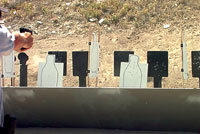 Outdoor ranges generally require less expensive equipment. An outdoor shooting range can be as simple as a shooting line and a dirt backdrop or as complex as a law enforcement proving ground with moving targets and realistic tactical simulations. Either way, the equipment you need for an outdoor range will probably be less expensive than an indoor range because you don’t need a building to house it in.
Outdoor ranges generally require less expensive equipment. An outdoor shooting range can be as simple as a shooting line and a dirt backdrop or as complex as a law enforcement proving ground with moving targets and realistic tactical simulations. Either way, the equipment you need for an outdoor range will probably be less expensive than an indoor range because you don’t need a building to house it in.
Outdoor ranges can provide a greater range of shooting with appropriate berms. While indoor ranges are generally limited to shooting straight ahead from a fixed position, outdoor ranges allow shooters to participate in tactical training with up to 180 degrees of firing mobility. The more flexibility your range offers, the more realistic your training scenarios will be.
In addition to increased firing mobility, outdoor ranges also allow for greater tactical training freedom. Training at an outdoor range can include multiple firing stations, a greater range of distance, vehicle scenarios, and terrain-based exercises.
With an outdoor range, you are less limited in the ammo you can use. While indoor ranges are sometimes restricted to bullets within a certain muzzle velocity and bullet type, most outdoor shooting ranges are virtually unrestricted. Some outdoor ranges are even capable of handling incendiary rounds and artillery fire. While training of this kind may not be necessary or even desirable at your range, the capability is available. Outdoor ranges can also more safely accommodate shooting steel targets.
CONS
Building an outdoor range requires expensive earthwork and soil engineering. Not all sites are immediately suitable for an outdoor shooting range and may require extensive excavation to ensure bullet containment. The less suitable the site, the more money you will have to spend to make sure the backdrop and containment systems meet federal regulations and local statutes. You also may have to bring in power, water, and sewage hook ups from a long distance away, thus increasing the cost and adding to the needed infrastructure of roads, parking lots, and other development.
Due to the open-air nature of outdoor ranges, however, complete bullet containment is usually impractical due to expense. This is why location is such an important element in the building of an outdoor range. Outdoor shooting ranges must be built in an area where an errant shot that goes over the backstop is incapable of doing damage; this is referred to as Surface Danger Zone (SDZ). This can require building the range in a remote area far from the city, and being far from civilization means your customers are going to have to travel a longer distance to use the range.
It is inherently difficult to contain lead and noise at an outdoor range, and as housing encroaches on formerly uninhabited areas, more and more outdoor shooting ranges are being shut down. While the location of your outdoor range may seem safe from housing development, conditions can quickly change and endanger the future of your range. You must try to plan for variables that could affect your outdoor range in the long term future.
Indoor Ranges
PROS
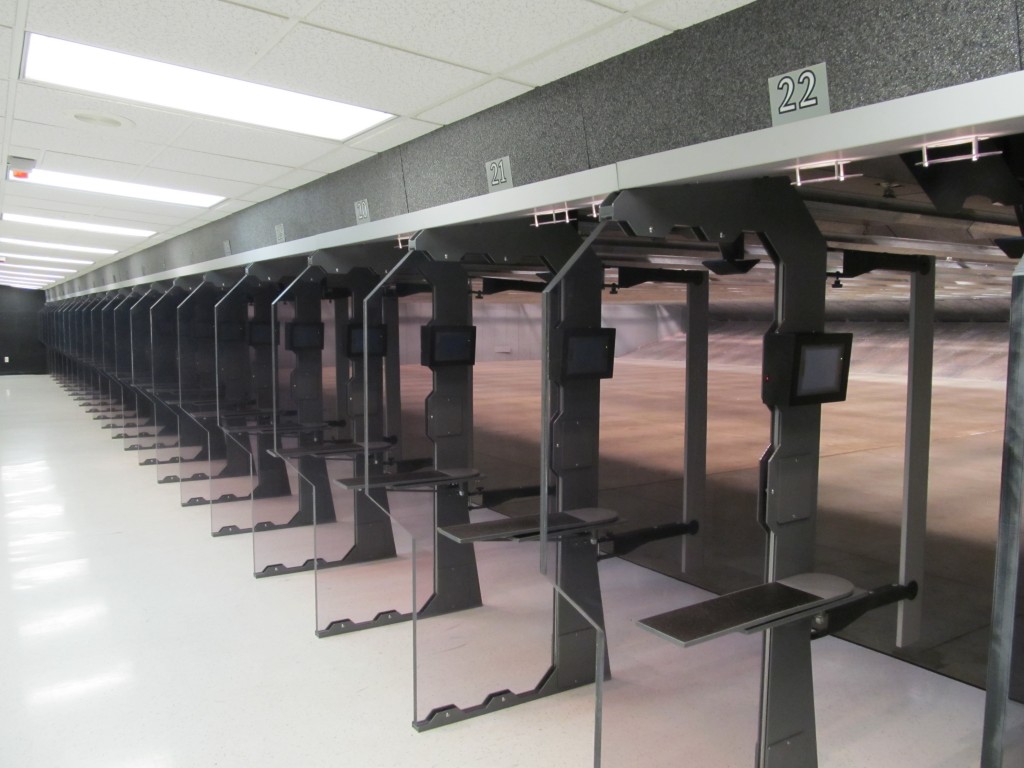 Because indoor ranges can easily be built in the middle of cities, they are much more convenient for customers. For commercial ranges, that means increased visibility and accessibility. For law enforcement, that means a cut in overtime costs for police departments because officers don’t have to travel as far as they would to train at an outdoor range. They can also easily train during inclement weather conditions that would be more difficult on an outdoor range.
Because indoor ranges can easily be built in the middle of cities, they are much more convenient for customers. For commercial ranges, that means increased visibility and accessibility. For law enforcement, that means a cut in overtime costs for police departments because officers don’t have to travel as far as they would to train at an outdoor range. They can also easily train during inclement weather conditions that would be more difficult on an outdoor range.
Technological improvements are making indoor ranges a more viable option for tactical training. Ballistic doors can allow vehicles to enter the range for training scenarios, lighting can be adjusted to simulate daylight and low light situations, sound effects can be played over the loud speakers to induce stress or simulate a combat environment, and bullet traps like the Total Containment Trap from Action Target allow for increased flexibility in shooting across firing lanes or at moving targets.
For commercial ranges, an indoor shooting range can provide a significant retail avenue. When combined with a retail firearm and an ammunition store, indoor ranges can be highly profitable ventures. Customers are more likely to buy ammo at the range where they shoot and are more likely to buy a gun if there is an opportunity to try it out on a shooting range first.
CONS
Indoor shooting ranges are more expensive to build and require a building to house them. For an indoor range you need to either build a new building from scratch or find a building that meets municipal requirements for parking, sound, and zoning that can be properly retrofitted to house an indoor range. Indoor shooting ranges also often require a target retrieval system, ceiling baffles, fully ballistic walls, bullet traps, a ventilation system, and lighting. All together, the equipment and facility costs can greatly exceed that of an outdoor range.
Indoor ranges are sometimes limited in the caliber and type of bullet that can be fired, depending on the range equipment chosen. The use of old or home-made bullet traps and the increased risk of ricochet that comes with an indoor shooting range naturally limits shooting capabilities. While modern bullet traps provided by Action Target can handle up to .50 BMG, many older indoor ranges cannot allow the use rifle calibers because their old range equipment designs will not safely stop rifle rounds. Because of size and sound constraints, some ranges don’t allow rifle shooting at all.
Indoor ranges also require costly range ventilation systems to meet OSHA and EPA requirements. For the health of yourself and your future customers, I should mention that your typical local HVAC contractor usually cannot properly design and install the type of system required for a clean and safe indoor range that I would shoot in with my own family. Ask your ventilation contractor how many indoor range ventilation systems they have designed and also ask them what design criteria is required to meet OSHA and EPA requirements. If they cannot guarantee that their system will meet these requirements, you might be making a costly mistake.
Rely on the Experts for Help
Whether you are deciding to build an indoor or an outdoor range, I recommend you contact the Action Target representative in your region and they will be happy to answer any questions you have and will help you determine what type of range and what equipment will best fit your needs and budget. They build hundreds of new ranges every year and will be able to draw on their vast experience and resources to help advise you with your project.
Follow this link to try our tool to Build Your Range and get a quote!
Please note, the tips included in this message have been found to be helpful for many clients throughout the years but may not apply in all situations. Please use judgment in determining which tips will be helpful in your particular situation.
![]() .
.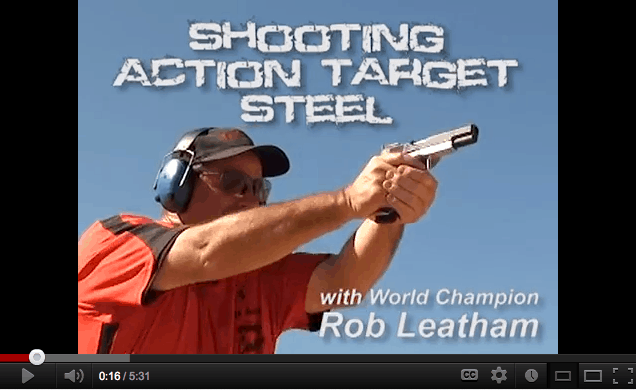


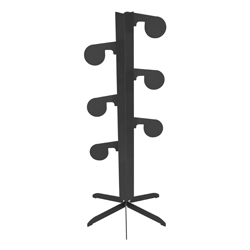
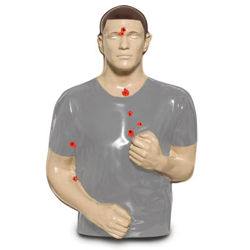
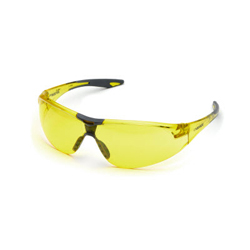
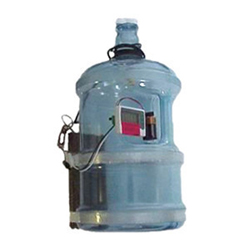
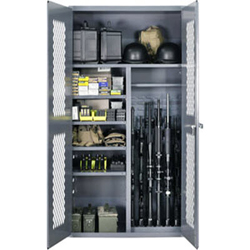
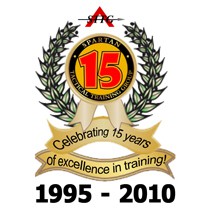 By John Krupa III of Spartan Tactical Training Group and Action Target Academy
By John Krupa III of Spartan Tactical Training Group and Action Target Academy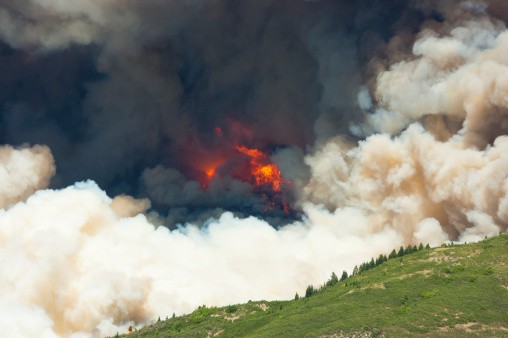 More than 20 wildfires have been started by target shooting this year in Utah alone with dozens more started in Idaho, New Mexico, Arizona, Nevada, and Washington. Many of those fires could have been prevented or stopped had the shooters been prepared. Here is a list of 10 things shooters can do to prevent wildfires while target shooting:
More than 20 wildfires have been started by target shooting this year in Utah alone with dozens more started in Idaho, New Mexico, Arizona, Nevada, and Washington. Many of those fires could have been prevented or stopped had the shooters been prepared. Here is a list of 10 things shooters can do to prevent wildfires while target shooting: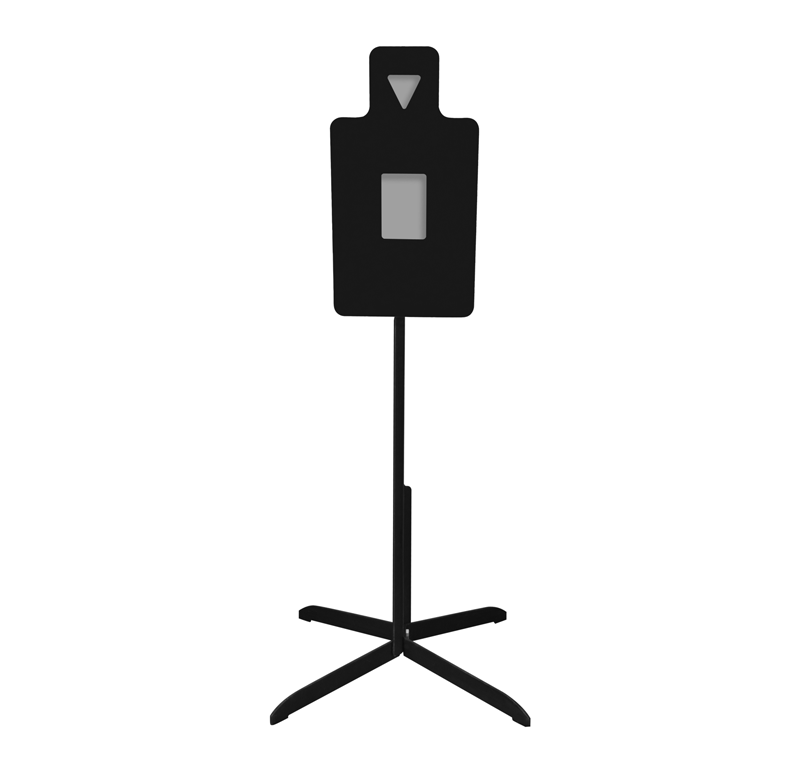 Action Target is pleased to announce its newest target – the AT Tactical Torso. The AT Tactical Torso is the upgraded version of the popular
Action Target is pleased to announce its newest target – the AT Tactical Torso. The AT Tactical Torso is the upgraded version of the popular 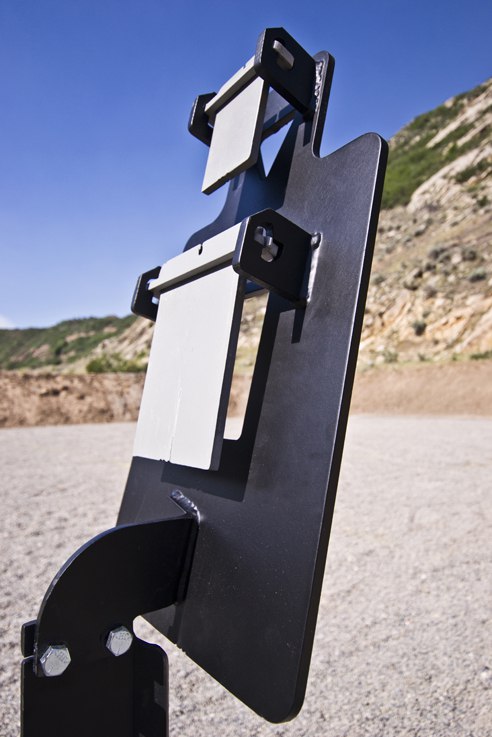
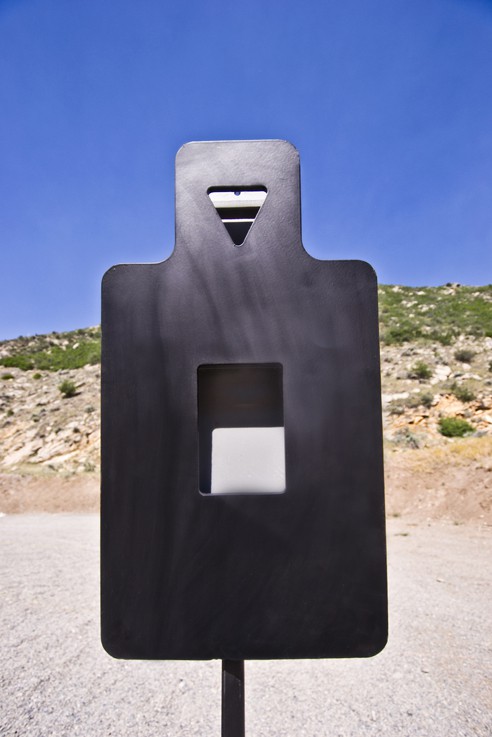

 Because
Because 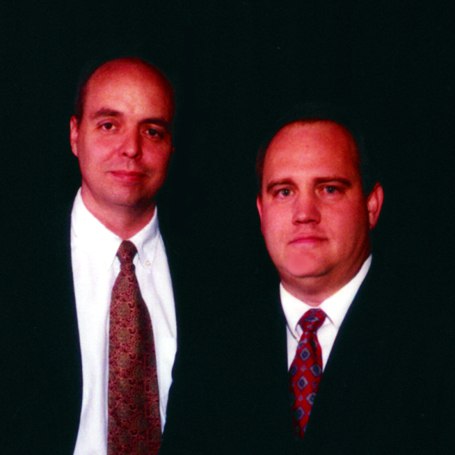 Addison Sovine and Kyle Bateman of Action Target, Inc. both received the Utah area
Addison Sovine and Kyle Bateman of Action Target, Inc. both received the Utah area